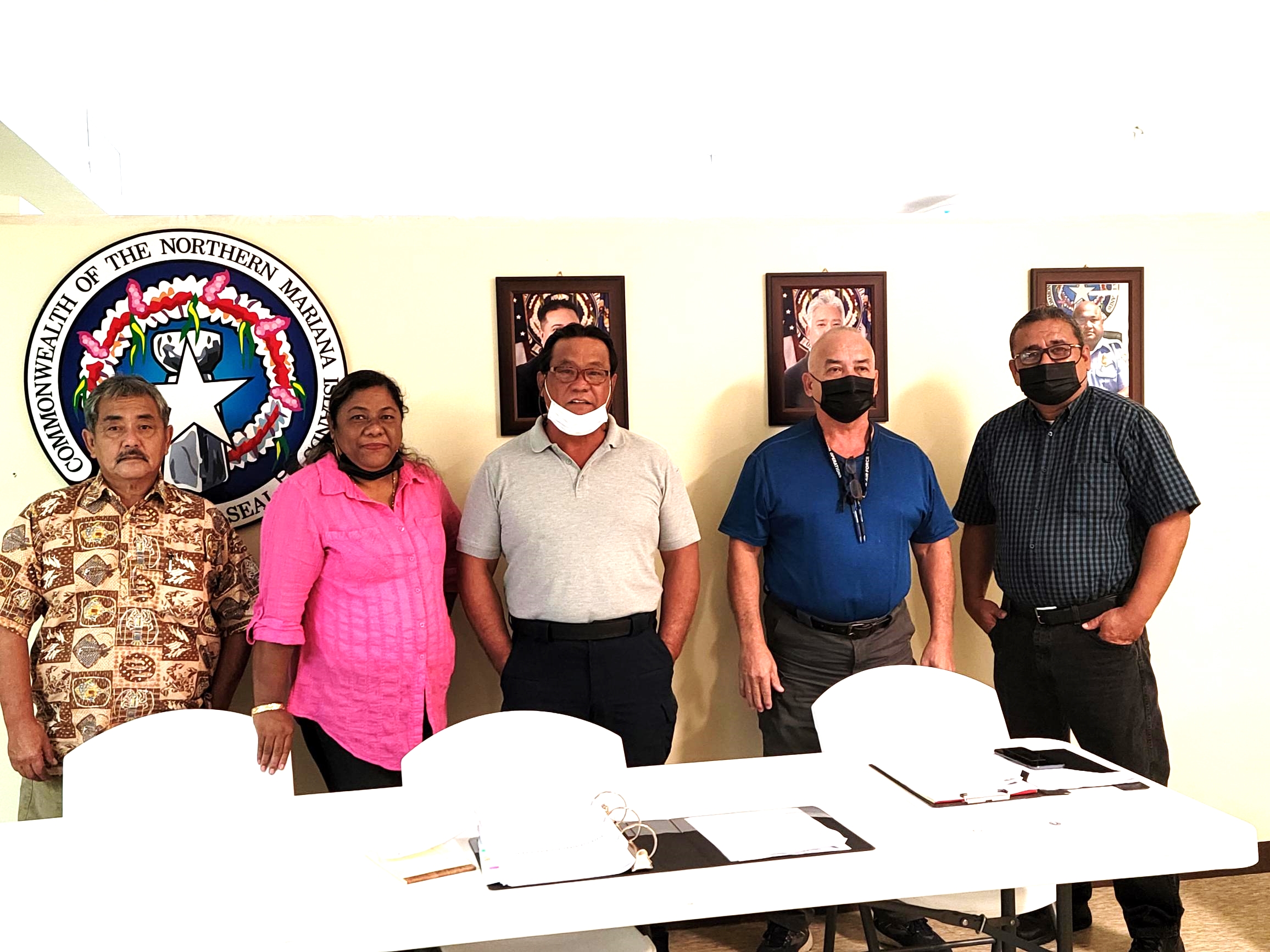FOLLOWING deliberations on Friday, the Board of Parole approved the parole applications of convicted murderers Francisco Aguon Pua and Eric William Rabauliman.
Board of Parole Chairman Ramon “RB” Camacho noted that a parole application hearing is not a trial.
“The trial for the inmates was done. We are entertaining their parole applications because it is part of each applicant’s judgement and commitment order — that they are eligible for parole after serving 1/3 of their sentence,” Camacho said.
If their parole applications are approved, the parolees must abide by the conditions of their release or they will be sent back to jail, Camacho added.
Francisco Aguon Pua was convicted of killing Mostofa Faruk Parves on May 22, 2002 and was sentenced to 50 years in jail. Parves was working as a cashier at Candi’s Poker at the time.
Eric William Rabauliman was sentenced to serve 26 years imprisonment for murder in the first degree committed during the perpetration of burglary and robbery.
Rabauliman and two other co-defendants were charged for the death of a security guard, Efren Lagua Ballesteros, at Marianas High School in Nov. 2008. The three defendants, who were all 16 years old that time, beat to death Ballesteros with a PVC pipe, an iron rebar and a 2×2 wood.
Denied
The parole applications of Jesse James Camacho, Clifford Jack Palacios, and Robert Kotep Shineachi were denied by the board.
Jesse James Camacho is serving a 45-year sentence for the death of a 13-year-old boy in Dandan in 1998. The victim was stabbed 37 times as part of initiation rites for membership in the so-called Red Rum Gang of which Jesse James Camacho was the leader.
Robert Kotep Shineachi was sentenced to 25 years in prison for sexual abuse of a minor in the first degree while Clifford Jack Palacios was sentenced to five years imprisonment all suspended except for three years for stealing $18,000 from a debit card.
Parole board vice chairman Ike Mendiola said: “I voted no to all the five applicants.”
He said inmates, especially convicted murderers, should serve at least two-thirds of their sentence before they are considered for parole.
Board member Michael San Nicolas, for his part, said: “It was a tough decision for me but based on the records given to us by the Department of Corrections since the time of their incarceration and observation of the applicants, I voted to approve two of the applicants [Rabauliman and Pua] — I gave them the benefit of the doubt.”
A newly appointed board member, Lucinda Rosario Selepeo, said, “I believe in second chances —everyone deserves a second chance, even [those who committed] serious offenses. We can all change. They came in here showing remorse and were very apologetic. We know that there is room for improvement.”
Board members George Hocog and Vicente Borja did not provide statements.
The Office of the Attorney General’s Criminal Division, through Chief Prosecutor Chester Hinds, had strongly opposed the parole applications of the five inmates.

From left, Board of Parole members Vicente Borja, Lucinda Rosario Selepeo, chairman Ramon Camacho, vice chairman Ike Mendiola, and Michael San Nicolas. Not in photo: George Hocog.










